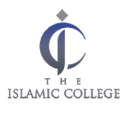ISC103 – Life of the Prophet
Course Overview
This module is the first part of the Islamic History modules. It aims to introduce the foundation of the formative period of Islam that began with the advent of Islam. It will present the social structure of the Arabs before the advent of Islam and the social milieu in which Muhammad was born. It focuses on the life and mission of the Prophet Muhammad, the establishment of the first Muslim community in Medina and its struggle for survival. The module will assist the student to grasp the foundation of Islam from an historical prospective and look at complex issues of the succession to the Prophet.
Module Info
- Syllabus
- Outcomes
- Strategy
- Material
sYLLABUS
- Pre-Islamic Arabia and the Prophet’s early life
- The primary message and the leading Meccan opposition
- The persecution in Mecca and the migrations
- The Constitution of Medina
- Mecca versus Medina
- The return to Mecca
- The social reforms of the Prophet
- The Farewell Pilgrimage
- The final days of the Prophet
- The Prophet’s succession
- Images of the Prophet in Medieval non-Muslim and Orientalists
Learning Outcomes
Knowledge
On completion of this module, the successful student will be able to:
- Examine basic approach between the religious side of the Prophet and the Prophet as a man with historical connation (A1).
- Identify the reasons behind the formation of the Muslim society in Medina rather than Mecca (A5, B2).
- Distinguish the role of the Prophetic period in forming the moral outlook of the Muslim mind (A4, B5).
Skills
This module will call for the successful student to:
- Identify, collect and organize historical primary sources and use sources effectively. (B6, C1, C5, D5)
- Formulate written material accurately in the form of an essay effectively, arguing and debating historical narratives (B5, C4, D3)
Learning, Teaching and Assessment Strategy
The module will be taught through lectures, which will allow time for discussions. Students work will be developed through search of primary and secondary sources.
Assessment Mode
Formative Assessment:
Formative assessment is an important part of the learning process and has been shown to help improve both grades and learning style. As students you receive formative feedback in a variety of ways, orally, in writing, to the whole class or individually. The module leader will regularly give feedback to student regarding the progress of their coursework, a draft copy of the completed coursework need be handed in to the module leader before the 10th learning week as part of the formative learning process. Additionally, revision sessions are arranged that will cover topics in preparation for exams, providing constructive formative feedback to students.
Summative Assessment:
Summative assessment for this module is by coursework and written exam. A 1,500 words word coursework will be written on a title agreed by the lecturer (Outcomes 4, 5). One draft of each coursework may be handed in to the lecturer before the 6th and 9th learning week respectively for formative assessment, in which the lecturer will give the student feedback on how to improve their research and quality of writing. The 2 hour written exam will take place at the end of the semester (Outcomes 1, 2, 3).
Assessment Weighting
Coursework: 40%
Written exam: 60%
Learning Material
Core readings
- Dabashi, H. (2017). Authority in Islam: From the Rise of Mohammad to the Establishment of the Umayyads. Routledge.
- Ibn Ishaq, M. (1982) The Life of Muhammad, A. Guillame (trans.), Oxford University Press Watt, W.M. (1991) Muhammad at Mecca, OUP Pakistan: Oxford University Press. Watt, W.M. (1991) Muhammad at Medina, New Ed edition. ed, OUP Pakistan: Karachi ; New York.


